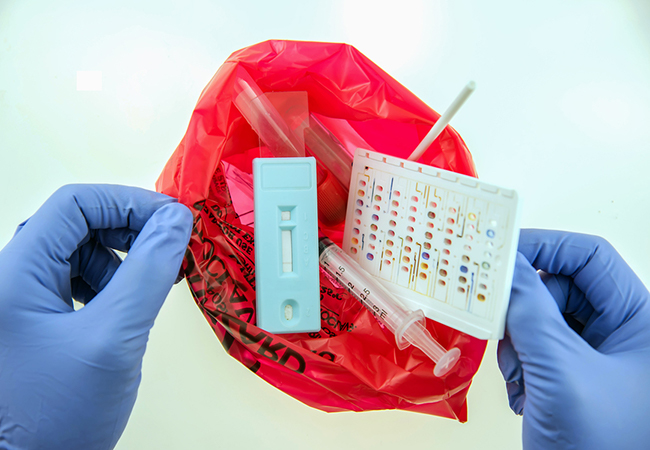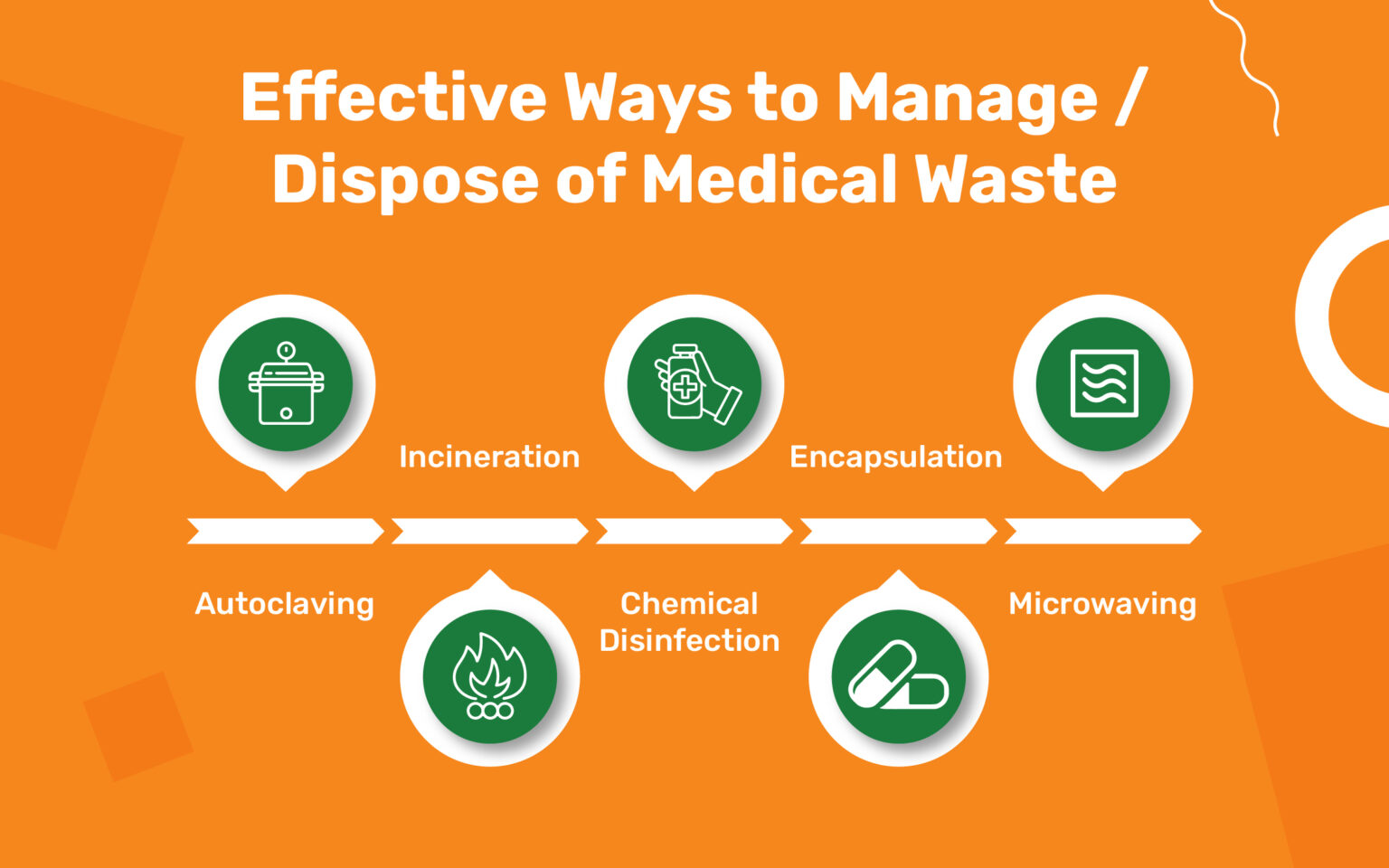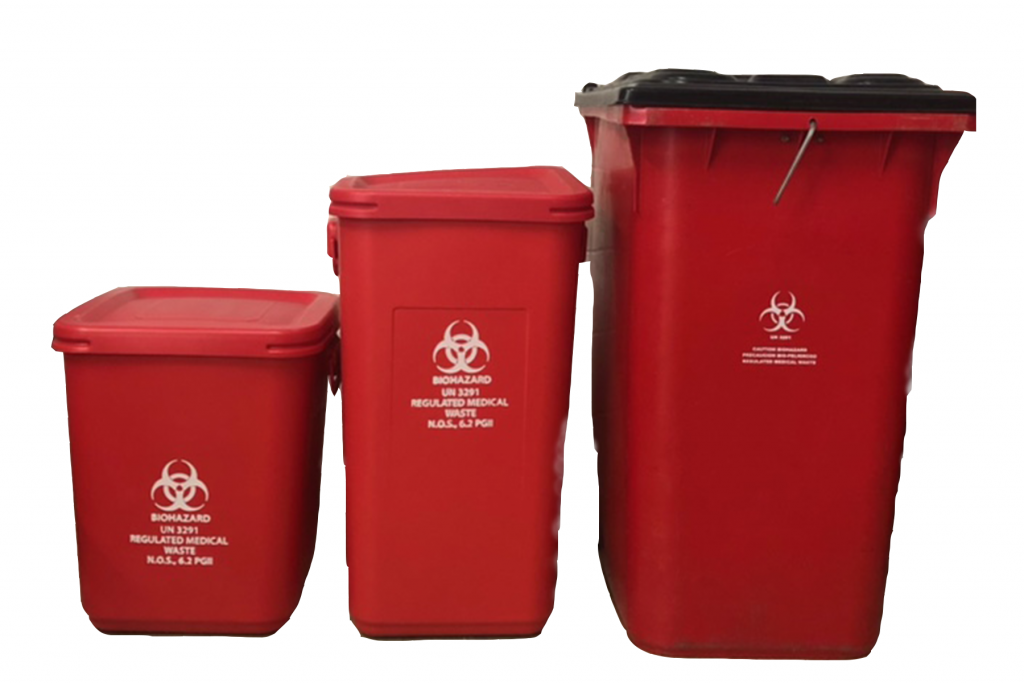Beyond Clean-up: Ensuring Security with Specialist Medical Waste Removal
Beyond Clean-up: Ensuring Security with Specialist Medical Waste Removal
Blog Article
Keep Ahead of Laws: Specialist Suggestions on Medical Garbage Disposal
In a globe where the medical care market is frequently developing, it is important for medical facilities to remain in advance of policies when it comes to the appropriate disposal of medical waste. With rigid standards and constant governing adjustments, it can be testing to browse the intricacies of this process. With expert guidance, centers can make certain compliance and mitigate dangers linked with incorrect waste disposal. From understanding the different groups of medical waste to implementing the best collection and partition approaches, this conversation will offer workable suggestions and important insights to assist centers remain in advance of guidelines in the ever-changing landscape of medical waste disposal.
Recognizing Medical Waste Categories
Recognizing medical waste groups is crucial for appropriate disposal and management in medical care facilities. Clinical waste refers to any kind of waste generated by medical care activities that may pose a threat to public health or the setting. It is vital to classify clinical waste precisely to ensure its risk-free handling, therapy, disposal, and transportation.
There are several categories of medical waste that healthcare facilities need to be acquainted with. The most typical groups consist of infectious waste, pathological waste, sharps waste, pharmaceutical waste, and chemical waste. Each classification has details guidelines and guidelines for its proper monitoring and disposal.
Contagious waste consists of materials infected with blood or other bodily liquids, such as handwear covers, gowns, and research laboratory cultures. Pathological waste refers to human cells, body organs, or body components that require unique handling and disposal. Sharps waste includes used needles, syringes, and other sharp objects that can create injury and transmit infections. Pharmaceutical waste comprises expired, unused, or polluted medicines that require mindful handling and disposal. Lastly, chemical waste consists of solvents, disinfectants, and various other chemical materials used in health care centers.
Remaining Up-To-Date With Regulatory Modifications
Staying current with regulatory changes is vital for health care facilities to make sure compliance and appropriate monitoring of clinical garbage disposal. medical waste removal. With policies constantly developing, it is vital for healthcare facilities to remain up-to-date to prevent fines, fines, and possible damage to the atmosphere and public health
To remain in advance of regulatory adjustments, medical care facilities must establish a system for surveillance and tracking updates. This can be done by signing up for regulatory e-newsletters, attending workshops and seminars, and proactively taking part in industry organizations. Additionally, centers must designate a team member or team in charge of staying notified and distributing information to relevant stakeholders.
Regular communication with regulatory agencies is also important. Medical care centers need to establish connections with regional, state, and federal companies to guarantee they know any changes in regulations that might influence their waste monitoring methods. This can be done through regular meetings, involvement in public remark durations, and positive interaction with regulatory firms.
Furthermore, medical care facilities should take into consideration partnering with waste administration firms that concentrate on clinical waste disposal (medical waste disposal services with WasteX). These business are frequently fluent in the most recent laws and can give assistance and assistance to make certain conformity
Carrying Out Appropriate Collection and Partition Approaches
To properly handle medical waste disposal, medical care centers must develop correct collection and partition approaches based on regulative standards. Implementing these techniques ensures the safe handling and disposal of possibly dangerous products, shields the setting, and lessens the danger of injuries and infections to medical care employees and the general public.
Appropriate collection and segregation methods involve using assigned containers and identifying systems. Medical Learn More Here care facilities must provide plainly labeled containers for various types of medical waste, such as sharps, contagious waste, pharmaceutical waste, and non-hazardous waste. These containers must be color-coded and plainly significant to avoid confusion and advertise very easy recognition.
Furthermore, health care facilities should train their team on the right procedures for collecting and setting apart medical waste. This includes educating them on the various kinds of waste, the proper containers to utilize, and the value of check complying with guidelines and regulations. Regular training sessions and correspondence course need to be carried out to make sure that team participants stay updated on best methods.
In addition, medical care facilities should develop a system for regular collection and disposal of clinical waste. This may involve partnering with licensed waste management firms that focus on clinical waste disposal. These firms will make sure that the accumulated waste is moved and gotten rid of in conformity with regulatory demands.
Picking the Right Disposal Methods

Incineration is just one of the most reliable and typical methods for disposing of specific types of medical waste, such as pathological waste and sharps. It entails the regulated burning of waste at high temperatures, lowering it to ash. However, incineration can launch unsafe contaminants right into the air and contribute to air contamination.

Chemical therapy involves the use of chemicals to sanitize and counteract the waste. Microwave therapy makes use of microwave energy to heat and sanitize the waste.
Ensuring Compliance With Documents and Training
After thoroughly taking into consideration the suitable disposal techniques for clinical waste, healthcare centers should make sure conformity with regulations and minimize environmental effect by applying reliable documentation and training procedures. This step is crucial in maintaining a lasting and safe environment for both healthcare workers and the general public.

Training is just as essential in making sure conformity with policies. Health care employees that handle medical waste must obtain appropriate training on waste partition, handling, and disposal procedures. This training must cover subjects such as the correct use personal safety tools, identification of various sorts of waste, and the right disposal methods for every waste category. By supplying comprehensive training, health care centers can empower their personnel to make educated decisions and lessen the threat of improper waste disposal.
Final Thought
Finally, remaining ahead of laws in clinical waste disposal is important for health care facilities. medical waste removal near me. Recognizing the various classifications of medical waste, remaining upgraded with regulative changes, implementing proper collection and partition approaches, selecting the suitable disposal methods, and making sure conformity with paperwork and training are all necessary steps. By following these guidelines, health care organizations can efficiently get rid of and take care of of medical waste in a liable and secure way
From comprehending the different classifications of medical waste to implementing the ideal collection and partition techniques, this discussion will supply useful insights and actionable pointers to aid centers remain in advance of guidelines in the ever-changing landscape of clinical waste disposal. - medical waste disposal services with WasteX
The most common classifications consist of infectious waste, pathological waste, sharps waste, pharmaceutical waste, and chemical waste. Healthcare facilities must supply plainly classified containers for various kinds of clinical waste, such as sharps, infectious waste, pharmaceutical waste, and non-hazardous waste. Healthcare facilities ought to establish a thorough system to record and track all aspects of medical waste disposal, including types of waste produced, amounts, and disposal approaches made use of. Medical care employees who handle medical waste must get proper training on waste partition, taking care of, and disposal treatments.
Report this page